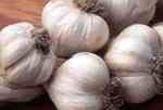Do Natural Aphrodisiacs Work?

For those in search of a natural aphrodisiac, fear not that your supply of rhino horn and tiger penis is running low. (They don't work anyway.) Scientists have found aphrodisiac properties in common spices and herbs.
Researchers at the University of Guelph in Ontario, Canada, have conducted an extensive review of dozens of studies on various plant and animal products thought to have aphrodisiac powers, from ambrien (excreted from sperm whale intestines; you don't want to know more) to Spanish fly (neither Spanish nor a fly, but such is the truth behind most so-called aphrodisiacs).
Among these, the substances with the most potential — and, coincidentally, the most palatable — are Korean ginseng and saffron. Yohimbine, from the bark of the West African yohimbe tree, also aided in sexual function in nine studies conducted over the last two decades; but yohimbine's side effects include seizures and death, not the kind of stiffness most guys are after. [Natural Viagra: Spider Bite Causes Erection]
Nutmeg, cloves, garlic and ginger, too, were at least moderately effective in animal studies. These results will appear in an upcoming issue of the journal Food Research International.
Got my mojo working
An aphrodisiac is a substance that increases sexual desire, or libido. Some human sexuality experts extend this definition to include a chemical's ability to enhance sexual pleasure.
Abiding by the narrower definition, there are no known natural aphrodisiacs. Viagra and Cialis are synthetic drugs, and nevertheless they do not increase libido. One's sexual desire, or mojo, must be working for these drugs to work.
Sign up for the Live Science daily newsletter now
Get the world’s most fascinating discoveries delivered straight to your inbox.
Alcohol merely lowers sexual inhibitions and ultimately reduces sexual performance. MDMA, or ecstasy, can increase tactile sensation and thus enhance sexual pleasure in this one regard; but as with alcohol, the drug can hinder erection and delay or diminish orgasm for both sexes.
Psychoanalysis, as sexy as that sounds, is the most common treatment for low libido, particularly when tied to depression or other psychological disorders.
Just mad about saffron
Saffron's aphrodisiac properties first were tested in rats, as if rodents have trouble copulating. Saffron extract increased rat erection frequency. (Editor's note: first documented use of this phrase!) Follow-up studies on human males with erectile dysfunction revealed how saffron is marginally effective but just not as good as Viagra. The absence of side effects, however, pushes the call for more studies.
Panax ginseng — the good stuff from Korea, sold as red ginseng if you can trust or read the label — effectively treated erectile dysfunction in several human studies. Ginseng also improved sexual desire and arousal in both sexes, raising the possibility that ginseng could be the first known legitimate natural aphrodisiac. Larger studies are needed, however.
Ginseng likely works like Viagra in relaxing muscles and improving blood flow to the genital region.
Yohimbine, familiar to those without spam filters as an ingredient in "natural" Viagra, seems to have aphrodisiac properties, according to numerous studies. Its potential, however, is hindered by numerous and serious side effects: panic attacks, kidney failure, hallucinations and the aforementioned death. The range between effective dose and dangerous dose is unknown but thought to be quite narrow.
Basic nutrition
Most aphrodisiac claims are the stuff of folklore. Some are innocuous: Oysters are high in zinc, needed for sperm production, and high in D-aspartic acid and N-methyl-D-aspartate, which might increase testosterone levels. Chocolate has phenylethylamine and serotonin, chemicals that light up pleasure areas in the brain. This doesn't imply — and no studies have shown — that chocolate increases sexual desire.
The maca root, should you ever find this Andean Mountain herb, is highly nutritious and might help with sexual performance by increasing blood flow. But, for now, this herb can't be classified as an aphrodisiac any more than general good health and fitness can.
Many other so-called aphrodisiacs are dangerous — either to the consumer or to the endangered species supplying the ingredient. For example, Spanish fly is ground-up blister beetle containing a caustic acid-like juice called cantharidin that causes a burning or swelling sensation in the urinary tract misconstrued as sexual stimulation. Perhaps this isn't good for the girl you love.
Before turning to exotic substances, consider improving your health. As reported in the American Journal of Medicine in 2007, erectile dysfunction is highly correlated with poor physical health and inactivity: More than 50 percent of diabetics, 44 percent of those with high blood pressure, and 26 percent of subjects watching three or more hours of television per day had trouble achieving an erection either "sometimes" or "always."
The side effects of diet and exercise include better self-confidence, which could be the best aphrodisiac yet.
Christopher Wanjek is the author of the books "Bad Medicine" and "Food At Work." His column, Bad Medicine, appears regularly on LiveScience.

Christopher Wanjek is a Live Science contributor and a health and science writer. He is the author of three science books: Spacefarers (2020), Food at Work (2005) and Bad Medicine (2003). His "Food at Work" book and project, concerning workers' health, safety and productivity, was commissioned by the U.N.'s International Labor Organization. For Live Science, Christopher covers public health, nutrition and biology, and he has written extensively for The Washington Post and Sky & Telescope among others, as well as for the NASA Goddard Space Flight Center, where he was a senior writer. Christopher holds a Master of Health degree from Harvard School of Public Health and a degree in journalism from Temple University.
Most Popular

